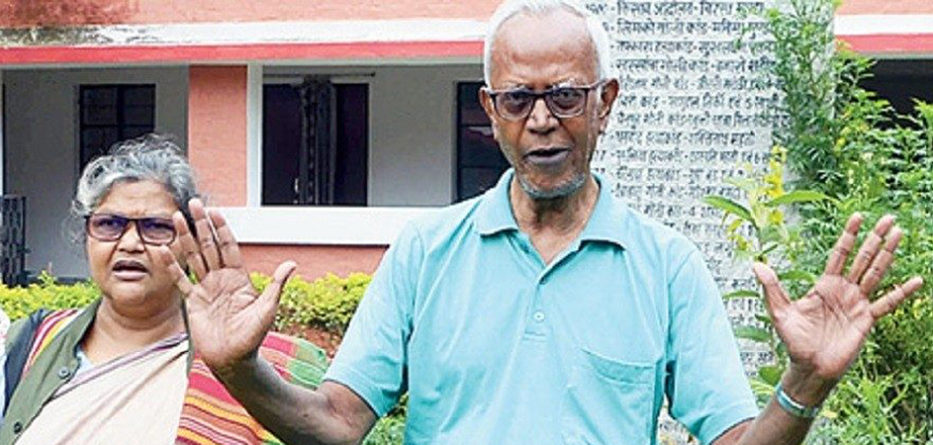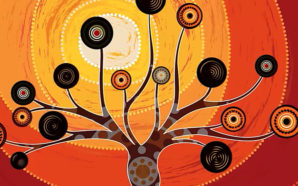Homily for the 16th Sunday in Ordinary Time
Readings: Jeremiah 23:1-6; Psalm 22; Ephesians 2:13-18; Mark 6:30-34
18 July 2021
The prophet Jeremiah did it tough, living in the worst of times. Born into a priestly family and living in the neighbourhood of Jerusalem, he had the misfortune to act as prophet to the people and to their leaders when they were being overrun and deported into exile with the Temple being destroyed in 587BC. In today’s first reading, he proclaims the Lord’s word: “Doom for the shepherds who allow the flock of my pasture to be destroyed and scattered.” This would not have endeared him to the religious and civic leaders of the southern kingdom Judah. He maintains and proclaims a dim distant post-exilic hope, with the Lord declaring, “But the remnant of my flock I myself will gather from all the countries where I have dispersed them, and will bring them back to their pastures: they shall be fruitful and increase in numbers.” Surrounded by disaster and perfidy on all fronts, Jeremiah almost naively continues to proclaim the bedrock necessity for civic and religious leaders to “be wise, practising honesty and integrity in the land”.
Listen at https://soundcloud.com/frank-brennan-6/homily-18721
This last fortnight we have witnessed the death of a modern Jeremiah, the 84 year old Indian Jesuit Fr Stan Swamy. Swamy was arrested and detained without bail in October last year. He was one of 16 persons charged with sedition by the National Investigation Agency (NIA) invoking provisions of India’s notorious Unlawful Activities Prevention Act (UAPA). Between 2016 and 2019, 6,000 people were detained without bail under these provisions, with only 132 persons being convicted of any offences.
Hailing from Tamil-Nadu in the south of India, Swamy worked as a priest in the north-east state of Jharkhand. He ministered to the poor and landless adivasi – the local Indigenous people. He produced a report Homeless in our own Homeland Jharkhand showing that “during the past 50 years, approximately 20 million people have been displaced in India due to mines, dams, industries, wildlife sanctuaries and field-firing ranges”.[1] By standing with the poor and dispossessed adivasis, Swamy knew that he was standing against corporate interests and the pro-development Modi government which has taken a dim view of Christian missionaries and those opposed to untrammelled economic development. Swamy was later to say, “I am not a bystander. I am willing to pay the price for my stance.”
One of his last publications prior to his arrest was a simple reflection written for an international Jesuit magazine Promotio Iustitiae. His piece was entitled: Indigenous Jharkhand: Where Birds and Fish Foretell Nature’s Seasons. Pope Francis whose signature encyclical is Laudato Si’: On Care for Our Common Home would have been well pleased. In just a few pages, Swamy described the beauty of nature and the plight of the poor. This is how he commenced the paper:
“The ancestors of the adivasis initially lived in the jungles, gathered food and hunted animals. Then slowly they started to produce food through agriculture. For that they had to clear small portions of jungles and gradually bring them under cultivation. This process not only brought them close to nature but also enabled them to understand the dynamics of nature. Even up to the present day, they have been keen observers of the behaviour of animals, birds, fish and changes in vegetation which helps them to predict and forecast the different seasons. This capacity enabled them to devise the what, the when and the how of the crops they would grow.”
He then listed many examples. Here is just one:
“If summer fruits like mango, leechi, jamun are plentiful, it means the monsoon will come on time and the rains will be plentiful; if not, that year’s monsoon will be scanty and untimely.”
This is how he concluded the paper:
“Sad but true, such beautiful and observational ways of relating to nature are becoming a thing of the past. Needless to say, the main reason for this great loss is the assault on nature by the capitalist ruling class and its instrument the government. This assault came in two ways: (1) in the form of the political act of depriving the adivasi of his access to (nature); and (2) in the form of violation of the eco-ethic norms and behaviour of the adivasi and his surroundings.”
“We all know that Capitalism will dig its own grave. We see that happening with regard to pollution of water, air, earth, vegetation and the destruction of the Ozone layer etc. The problem of “earth warming” is being spoken about by environmentalists. But nobody is listening. The real tragedy is that the adivasi who has been the custodian of the forest from time immemorial has now been reduced to a situation where he himself has begun to denude the forest to eke out his livelihood. Verily adding injury to insult.” [2]
His message was simple, even simplistic. For some it would have been prophetic; for others naïve, but not at all seditious. Suffering Parkinson’s Disease, the 84-year-old Swamy was charged and taken into detention last October on trumped up charges. In detention, he caught COVID. It took the intervention of the Bombay High Court in May this year to authorise the continuation of his detention in hospital rather than prison. On 5 July, his lawyers were back in court arguing for his release only to report to the Bench that their client had died during the course of the hearing.
One of Fr Swamy’s last messages from jail was poignant: “What is happening to me is not something unique, happening to me alone. It is a broader process that is taking place all over the country. We are all aware of how prominent intellectuals, lawyers, writers, poets, activists, student leaders — they are all put in jail just because they have expressed their dissent … I am ready to pay the price whatever may it be.” He was fond of telling his fellow Jesuits that even in jail, the free bird sings. When Sr Swamy died, Fr. Stany D’Souza, Jesuit provincial of South Asia wrote, “Fr. Stan embraced a simple life and worked tirelessly for the rights of the poor Dalits and indigenous peoples. Right up to his last breath, imprisoned and deprived of basic human rights, he still continued to march in solidarity with the marginalized people of our times. Therefore, even as we mourn his undeserved, untimely and unjust demise, we shall still celebrate his life wholly dedicated to the service of the last, the least and the lost.”[3]
In today’s gospel, Jesus takes pity on the people “because they were like sheep without a shepherd”. In the words of the all too familiar Psalm 22 which we pray today, we hail the Lord, the true shepherd who guides us on the right path, who prepares a banquet for us, who leads us by restful waters, who gives us repose in fresh and green pastures, and who invites us to dwell in his own house.
As we continue to confront the COVID pandemic and as we confront the many injustices in our avaricious world – injustices like the ongoing dispossession and oppression of the adivasi – we thank God for those shepherds in our midst who accompany the adivasi in every land, who name and publicise the woes of the powerless and voiceless, and who speak truth to power shining a light in the darkness. Let’s be ever attentive to the free birds singing in captivity. Their song is the dim distant hope for the post-exilic remnant: “I will gather them from all the countries where I have dispersed them, and will bring them back to their pastures: they shall be fruitful and increase in numbers.” May Fr Swamy rest in peace. May his people once again find peace and harmony on their lands. May his song be heard near and far, now and for years to come.
[1] Quoted by P. A. Chacko SJ, ‘Walking an Extra Mile with the Indigenous’, Promotio Iustitiae, No 127, 2019/1, Social Justice and Ecology Secretariat, Society of Jesus, Rome, p. 71 at p. 74, available at https://www.sjesjesuits.global/media/2021/02/PJ_127_ENG.pdf
[2] Stan L. Swamy SJ, ‘Indigenous Jharkhand: Where Birds and Fish Foretell Nature’s Seasons’,
Promotio Iustitiae, No 127, 2019/1, Social Justice and Ecology Secretariat, Society of Jesus, Rome, pp. 77-79, available at https://www.sjesjesuits.global/media/2021/02/PJ_127_ENG.pdf
[3] Letter of Fr S. D’Souza to Jesuit Superiors, 6 July 2021, available at https://standwithstan.jcsaweb.org/news/POSA-Circular.pdf
Fr Frank Brennan SJ is the Rector of Newman College, Melbourne and the former CEO of Catholic Social Services Australia (CSSA).








